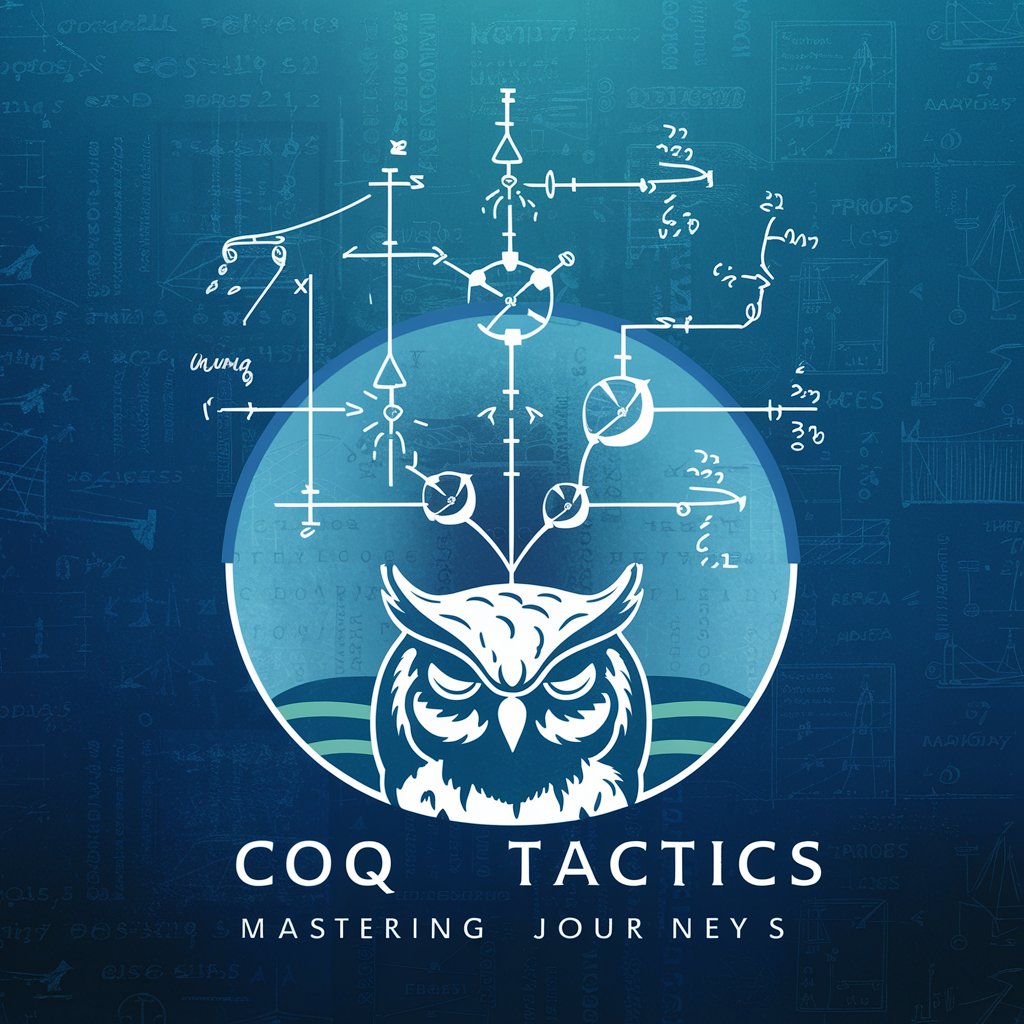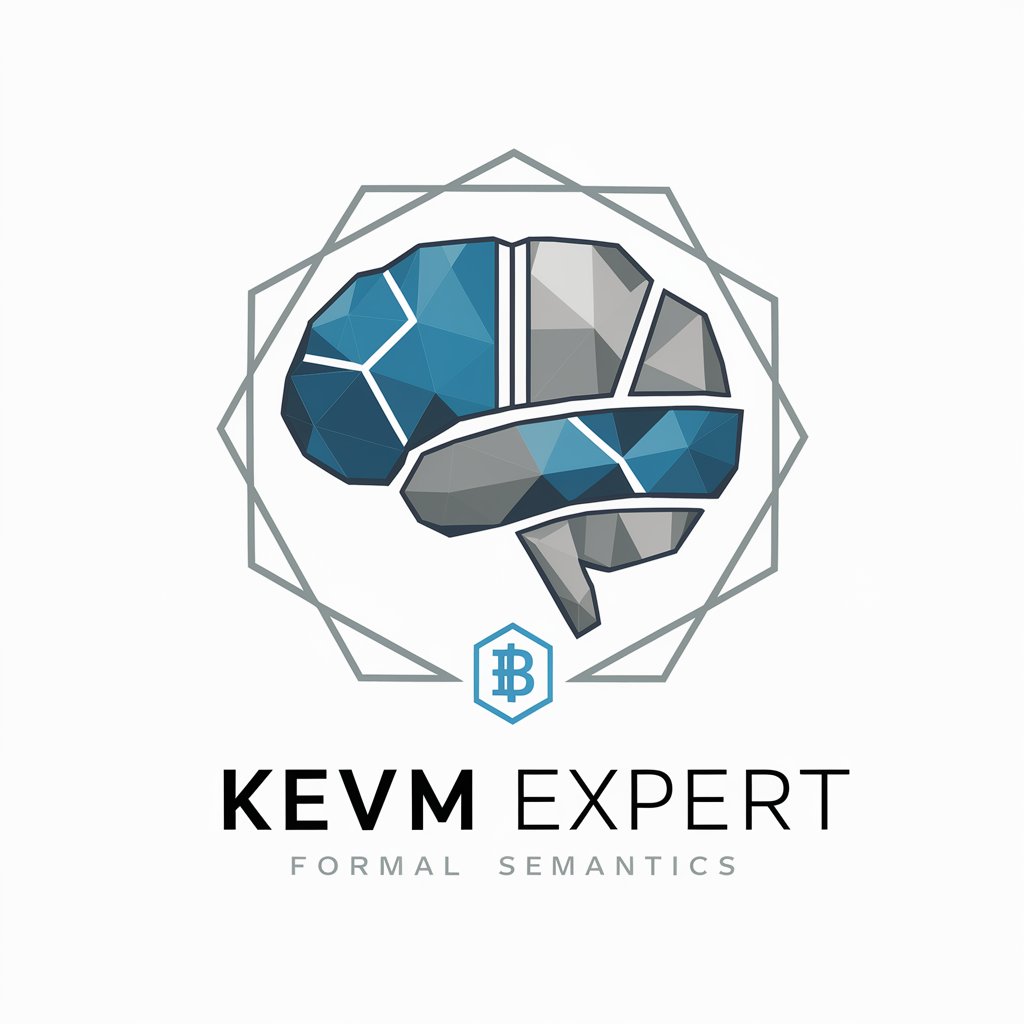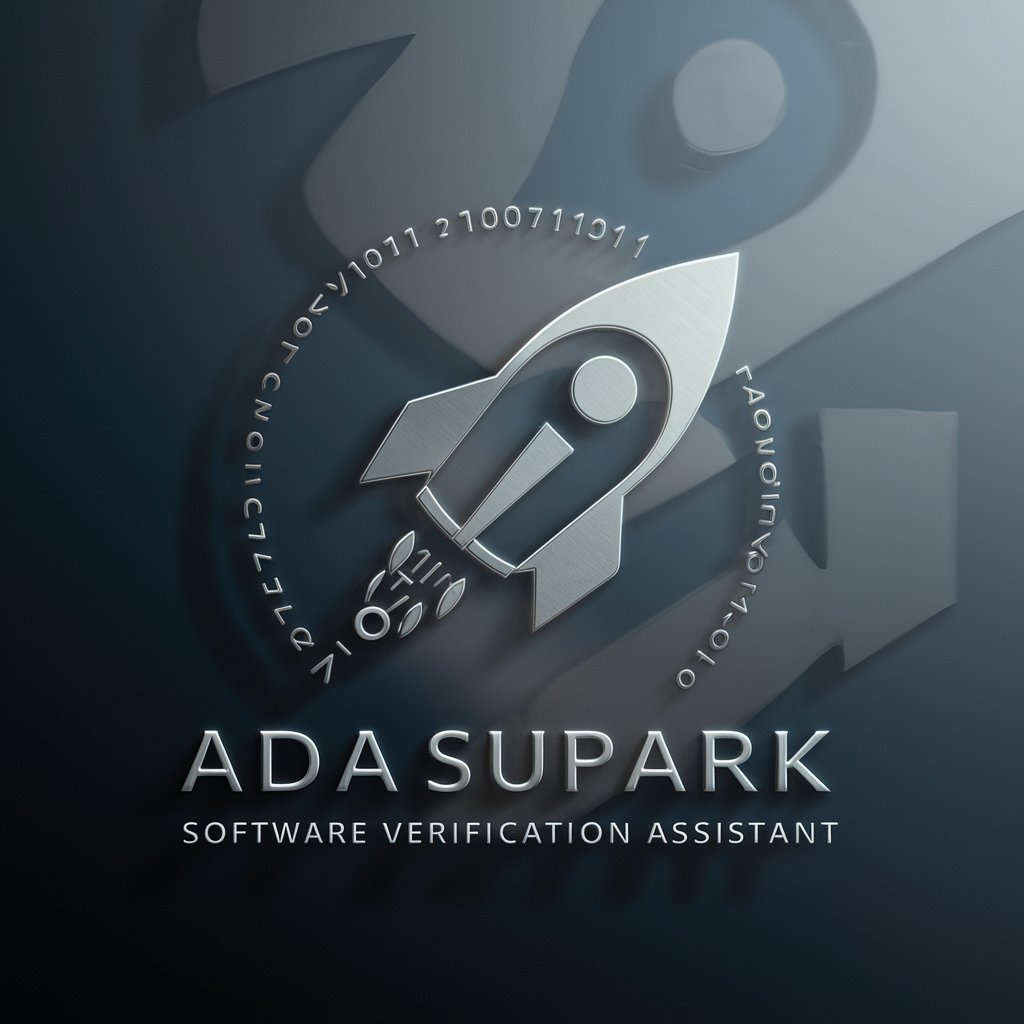4 GPTs for Formal Methods Powered by AI for Free of 2025
AI GPTs for Formal Methods are advanced tools that leverage the power of Generative Pre-trained Transformers to cater to the specific needs of formal methods. These tools are designed to understand, generate, and manipulate formal languages and mathematical proofs, making them invaluable in areas requiring high precision and formal verification. By incorporating GPTs, these tools offer tailored solutions that enhance the development, verification, and validation of software and systems within the formal methods domain.
Top 4 GPTs for Formal Methods are: 📘 Learning Coq Tactics,KEVM expert,🚀 SPARK Verification Assistant,🚀 SPARK Wizard
📘 Learning Coq Tactics
Master Coq Tactics with AI-Powered Guidance

KEVM expert
Empowering Smart Contract Integrity

🚀 SPARK Verification Assistant
Elevating software reliability with AI-powered SPARK verification.

🚀 SPARK Wizard
Empowering error-free software with AI

Unique Characteristics and Capabilities
AI GPTs tools for Formal Methods come equipped with a range of unique features designed to support the rigorous demands of formal verification and software correctness. Key capabilities include the ability to generate and analyze formal specifications, automate theorem proving, and support model checking. These tools adapt from basic to advanced formal methods tasks, and may include specialized features for language learning, technical support, enhanced web searching, creative image generation, and sophisticated data analysis.
Who Benefits from Formal Methods GPTs?
The primary users of AI GPTs tools for Formal Methods encompass a broad spectrum, including novices interested in learning about formal methods, developers integrating formal verification into software development, and professionals seeking advanced tools for system verification. These tools are designed to be accessible to users without programming skills, while also offering extensive customization options for those with a technical background.
Try Our other AI GPTs tools for Free
EVM Analysis
Discover how AI GPTs for EVM Analysis revolutionize blockchain development with tailored AI-driven insights for smart contract and transaction analysis.
Culinary Humor
Discover the joy of Culinary Humor with AI GPTs, your go-to for generating witty, food-related jokes and engaging content tailored to food enthusiasts and professionals alike.
Desktop Aesthetics
Discover how AI GPTs transform desktop environments with personalized aesthetics, offering unique wallpapers, themes, and interface designs tailored to your preferences.
Cast Coordination
Discover how AI GPTs revolutionize Cast Coordination with adaptable, efficient solutions for managing casts in productions. Ideal for professionals seeking streamlined processes.
Newsletter Drafting
Discover how AI GPTs revolutionize newsletter drafting with tailored content creation, multilingual support, and integration capabilities, making professional communication effortless.
Athlete Stories
Discover how AI GPTs are revolutionizing Athlete Stories, offering personalized narratives, in-depth analysis, and engaging content for sports enthusiasts and professionals alike.
Expanding Horizons with GPTs in Formal Methods
AI GPTs tools for Formal Methods are not just about automating tasks; they are about enhancing the way we approach formal verification and validation. With user-friendly interfaces and the ability to integrate into existing systems, these tools open up new possibilities for improving software reliability and system correctness across various sectors.
Frequently Asked Questions
What are AI GPTs for Formal Methods?
AI GPTs for Formal Methods are specialized tools that use Generative Pre-trained Transformers to aid in tasks requiring formal verification, specification, and analysis, catering specifically to the needs of formal methods.
How do these tools differ from general-purpose AI models?
These tools are specifically tailored for formal methods, offering capabilities such as formal language processing, theorem proving automation, and model checking, which are not typically found in general-purpose AI models.
Can non-programmers use these GPTs tools effectively?
Yes, these tools are designed with user-friendly interfaces that allow non-programmers to perform complex formal methods tasks without needing to write code.
Are there customization options for experienced developers?
Absolutely, experienced developers can leverage APIs and scripting capabilities to customize and extend the tools for more complex or specific tasks within formal methods.
What types of formal methods tasks can be automated with these GPTs tools?
Tasks such as generating formal specifications, automating proofs, and facilitating model checking can be automated or significantly assisted by these tools.
How do these tools integrate with existing software development workflows?
Many AI GPTs tools for Formal Methods are designed to be integrated with existing development environments and workflows, allowing for seamless addition of formal verification processes into software development cycles.
Can these tools help in learning and education within formal methods?
Yes, they can provide educational support by offering explanations, generating examples, and facilitating interactive learning experiences in formal methods.
What is the future potential of AI GPTs in the field of formal methods?
The future of AI GPTs in formal methods is promising, with potential advancements in automation, accuracy, and the ability to handle increasingly complex verification tasks, thus revolutionizing how formal methods are applied in software and system development.